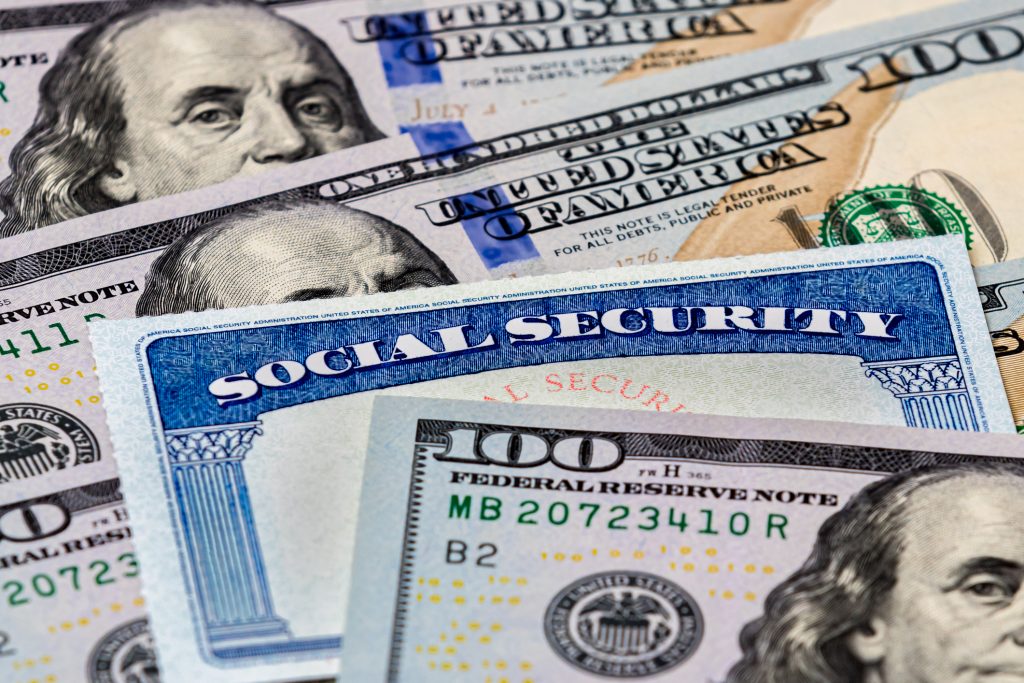
Image source: Getty Images
A recession can be a scary thing. And while recessions can play out in varying degrees, on a basic level, you’re looking at a period of economic decline.
It’s common for unemployment rates to rise during a recession. And sometimes, stock values can fall.
The good news on the recession front is that we seem to have avoided one in 2024. Granted, with another month left to go, anything can happen. But the likelihood of going from a reasonably strong economy to a downturn within the next five weeks or so is low.
Things might change (for the worse) in 2025, though. The Federal Reserve puts the probability of a recession in the next 12 months at 42%. That’s not an overwhelmingly high percentage, but it’s certainly not a negligible one.
What should you do upon hearing this? First, here’s what you shouldn’t do — panic. There’s no need to assume the worst, and that outlook could always change for the better in the coming months.
But there are also some action items to put on your list for the coming weeks to protect yourself from a 2025 recession, just in case. Here are three worth focusing on.
1. Boost your emergency fund
Since a recession could put your job on the line, it’s important to prepare financially by having a solid emergency fund. At the very least, aim for three months’ worth of living expenses in the bank. This buys you some protection if your paycheck goes away all of a sudden.
But don’t just leave that money in a checking account, where it might earn a negligible amount of interest or none at all. Instead, take advantage of today’s outstanding savings account rates.
Even with the Fed cutting its benchmark interest rate twice this year, many savings accounts are still paying around 4%. Click here to shop around for the best high-yield savings accounts we’ve found.
2. Grow your job skills
Worried about losing your job in a recession? Then another key thing to do is make yourself the most valuable asset to your company you can be.
Growing your job skills could spare you from getting laid off if your employer is forced to make cuts. And if you end up out of a job, having more skills puts you in a better position to get hired elsewhere.
If you’re not sure what skills to work on, a good bet is to look at listings for the types of jobs you’d be interested in having. Review those descriptions carefully to see what skills are listed as requirements, and then aim to build skills in that category you don’t currently have.
3. Network like a beast
If a recession hits in 2025 and you end up out of a job, you may need to call in some favors. But imagine how those conversations might go if you haven’t been in contact with anyone from your professional network in ages.
“Hey, Mike, long time. How’s the baby? Oh, right…the baby is 5 years old. Wow. Time flies. So listen…”
Talk about awkward.
If you want to put yourself in a better position to ask for help on the job front in 2025 should that become necessary, start networking now. And with the holidays coming up, you have a natural icebreaker.
Invest a little money in a bulk package of holiday cards, and then spend the time writing personalized notes wishing your contacts well and asking to get back in touch. If you reconnect with those people months before you end up needing their help, you may have a much easier time getting it.
There’s no reason to assume the economy is going to tank in 2025. But it’s best to be prepared for that situation. Taking these steps could be good for your peace of mind, so they’re worth doing even if economic conditions don’t sour in the new year.
Alert: highest cash back card we’ve seen now has 0% intro APR into 2026
This credit card is not just good – it’s so exceptional that our experts use it personally. It features a 0% intro APR for 15 months, a cash back rate of up to 5%, and all somehow for no annual fee!
Click here to read our full review for free and apply in just 2 minutes.
We’re firm believers in the Golden Rule, which is why editorial opinions are ours alone and have not been previously reviewed, approved, or endorsed by included advertisers.
Motley Fool Money does not cover all offers on the market. Editorial content from Motley Fool Money is separate from The Motley Fool editorial content and is created by a different analyst team.The Motley Fool has a disclosure policy.
 benzinga.com
benzinga.com fool.com
fool.com



